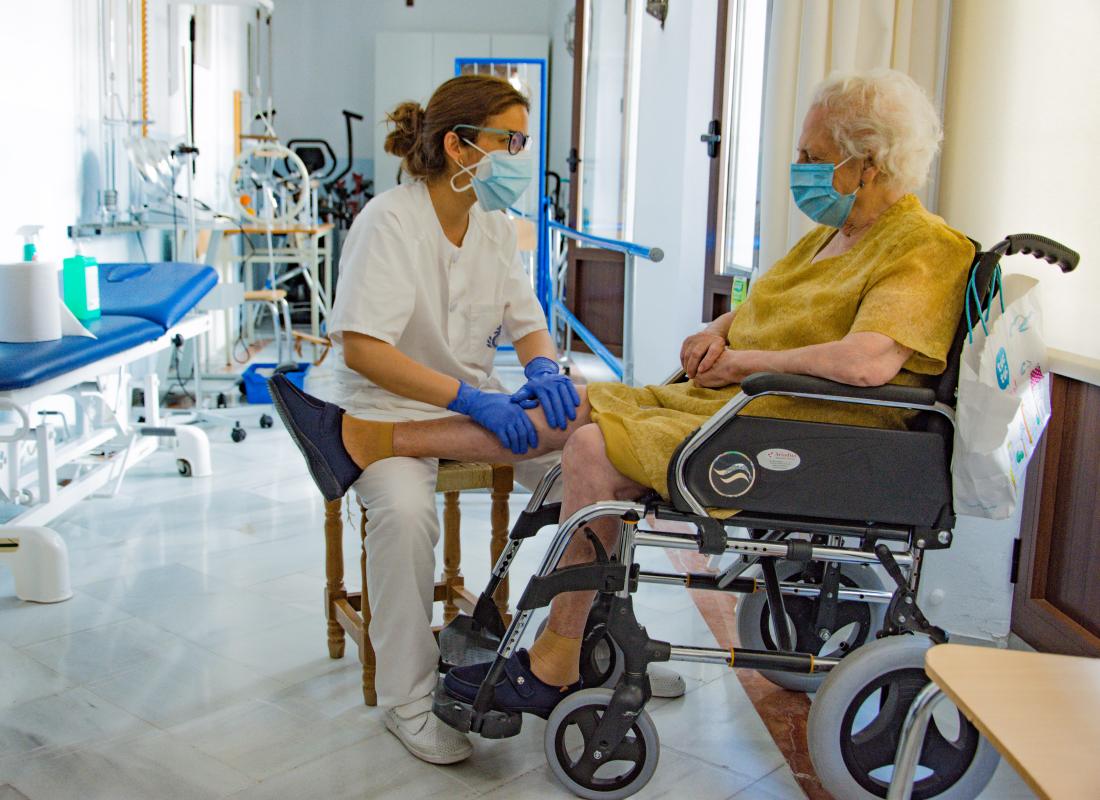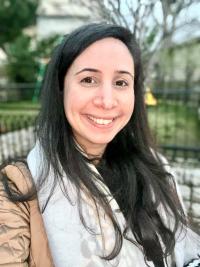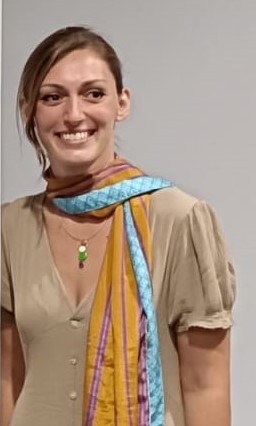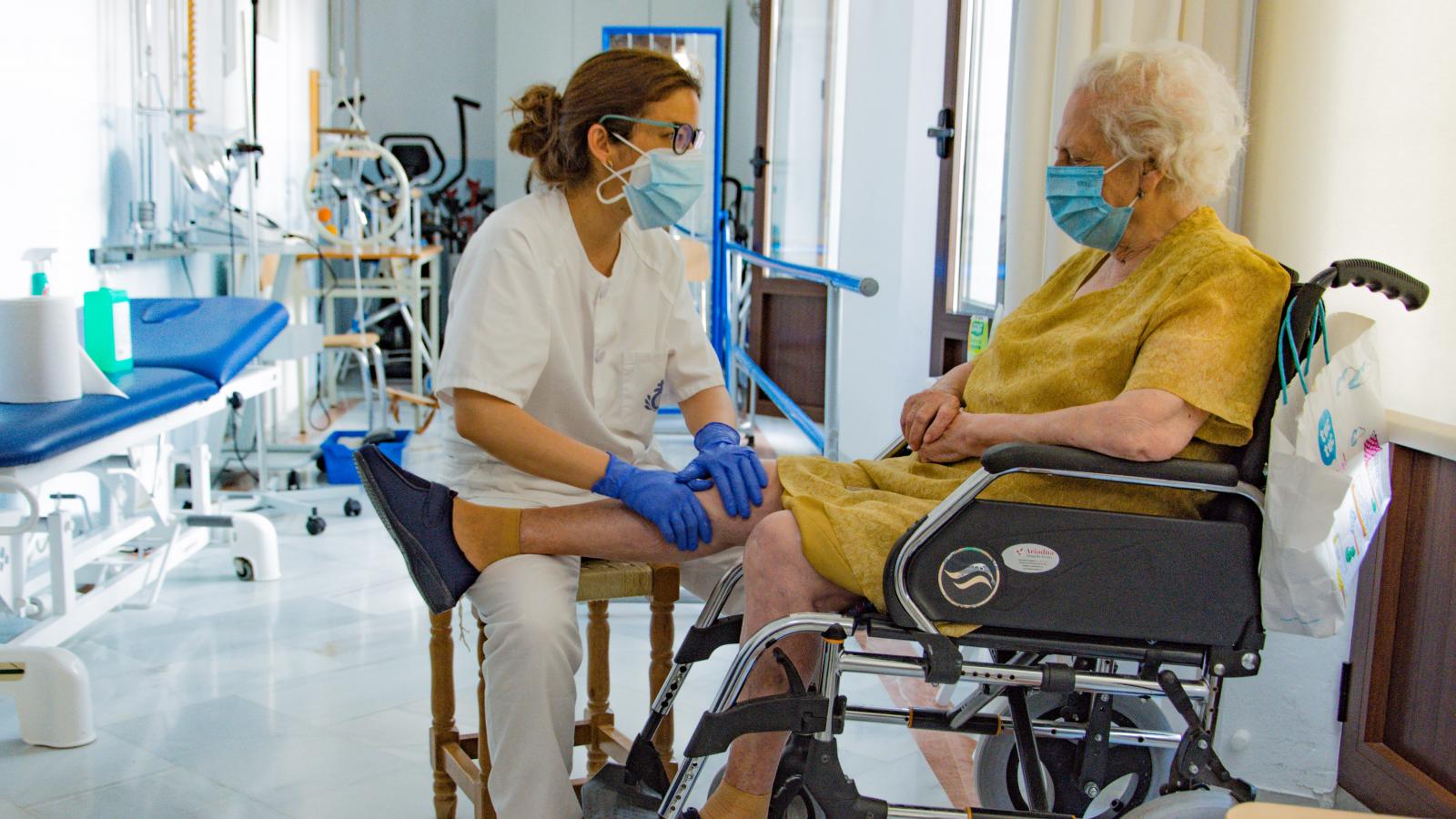A new care model for ageing Mediterranean people: the experience of TEC-MED project

TEC-MED project is coming to its end, and we know little about the situation of dependent elderly people in the Mediterranean region. What is the situation about ageing population in the region? How is it being tackled? Discover the work carried out in the the framework of TEC-MED project to face this socio-demographic phenomenon and the challenges faced by partners from Spain, Italy, Greece, Tunisia, Lebanon, Egypt to implement new solution.
To answer these questions, ENI CBC MED programme has interviewed 2 women: Guilia Costanzo Talarico and Lea El Korh. Guilia is a sociologist and member of the coordination team of TEC-MED at the nursing department of the University of Seville (Spain), and the scientific manager of TEC-MED. Lea El Korh is a public health specialist with a focus on mental health and ageing at IDRAAC (Institute for Development, Research, Advocacy and Applied Care), a Lebanese NGO, partner in the project. She is one of the communication managers of TEC-MED too. Both are very much involved in the implementation of TEC-MED and shared with passion the work they have developed during the last 3 years despite all the difficulties related to COVID-19 knowing that the bulk of the project is about dealing with elderly people.
Ageing population in the Mediterranean region
Ageing population is usually associated to Europe compared to North Africa and the Middle East (MENA) region which is characterized by a younger population. However, the MENA region is also facing the challenge of ageing population as health conditions have improved a lot during the last decades and people live longer. For example, Lebanon has the highest rate of elderly people among Arab countries. There is a big increase of people aged 65 and over. They currently represent about 11% of the population but are expected to reach 23.3 % of the population by 2050 explains Lea El Korh. Besides enjoying good medical services, this percentage could also be explained by the fact that more and more young Lebanese people are migrating especially since the end of 2019, when the socio-economic crisis increased sharply in the country, leaving older people with no choice than staying there.
Culturally speaking, it is much more common for elderly people to remain in their own homes or at their relatives´ houses instead of living in a nursing home. The situation is similar in Egypt, Tunisia and even in Greece. While, in Spain and Italy, having their elderly in nursing homes is more frequent.
Economically speaking, Spain enjoys a high quality of public health services towards the elderly, and Italy enjoys a similar situation but with more privatisation. In Greece, there is not enough public services for the elderly and most of the people cannot afford private services for them. In Tunisia, Egypt and Lebanon, the situation is quite the same as there is no strong public service to guarantee a good pension. This is a quick overview of the Mediterranean countries in which TEC-MED worked.
Part of the richness of TEC-MED project, is the diversity of the 6 countries that took part in it

Whether staying at home or living in a nursing home, elderly people - especially those who are dependent - need special attention. Unfortunately, ageing population is a public concern but not a priority reminds Giulia.
TEC-MED: a social care model for elderly people to put the human at the centre
With the increase of life expectancy worldwide, people live more but what people really want is not only to live more but to live better. TEC-MED wanted to respond to this need. The project focused on people aged 60 and more with cognitive and physical dependencies. Obviously, it is not the same suffering from one pathology or multiple pathologies, having 60 years old or 90, living at home or being in a nursing home especially when it comes to autonomy.
People with dependencies need help and support to wash, put their clothes on, cook, eat, etc. When it comes to elderly people in nursing homes, they often cannot choose the life they want. It can be as simple as what they want to eat today or what kind of cultural activities they wish to do.
Let them decide about some parts of their lives and not treat them like prisoners

Considering all these parameters and developing a simple questionnaire to address all these aspects, TEC-MED partners started spending time with elderly people and interviewed them to better assess their needs and provide them with tips that can improve their quality of life. These recommendations could be related to eating habits, exercising, available services nearby, relaxation techniques, places where then can gather and socialise in their neighbourhoods, etc. Most of them enjoyed these interviews and welcomed all the information provided as they have nothing to lose. By developing this methodology, TEC-MED demonstrated that another care is possible based on social and cultural factors, not only through financial support and access to nursing homes.
Once the methodology was developed, people were trained to use it, to test it in the 6 participating countries and finally certify it. A new care model based on a person-centred approach was born.
Moreover, applying this care model allowed the partners to better identify some weaknesses. First, there is a lack of interest from policy makers. Second, there is a lack of listening to the needs of older people and third there is a lack of proactiveness. TEC-MED partners realised how much elderly people wanted to be empowered with knowledge and skills. They want to have an active role. TEC-MED shed light on the importance of caring. When people feel listened to, they feel better and this improves their quality of life. And here is the point, when it comes to convince policy makers, it is always much more difficult to show the qualitative added value versus the quantitative data.
This project is an eye opener on the situation of elderly people
Main challenges to implement a model for the elderly people and their caregivers
Giulia and Lea sum up the main difficulties they faced to implement the projects´ activities.
First of all, it was hard to explain to elderly people what TEC-MED wanted to develop (a new care model based on social, cultural and ethical factors). Many of them would say “What are you selling” when TEC-MED partners were approaching them.
Secondly, they realised that training the training agents who would conduct the interviews with the elderly people was not an easy task. Trainers were not only expected to receive inputs but also to contribute in developing the model. There must be a personal implication when you get involved as a training agent adds Giulia.
Thirdly, they face a real digital gap when they developed the e-platform in 6 languages to be used by the training agents and the elderly.
Finally, it was not always easy to deal with the expectations of the elderly. Some were grateful and were waiting for the visits of the training agents while others had very high expectations that could not be met.
Increase quality of life and a great investment for public health policies
All the challenges faced are worth it as this new care model proves to increase the quality of life of elderly people. Now, TEC-MED partners have to convince their policy makers on the importance to invest in such a model to decrease spending on public health services. Sometimes, small changes can make a big difference.










